It's been a busy season for Living Legend. Once the hallowed resting place of heroes too strong for the meta they warped around them, Living Legend has finally taken on its intended role as a gradual method for rotation. Oldhim was the first to complete his slow ascent; but he was quickly succeeded by his Arian compatriots - Briar, Lexi, and now Iyslander.



Beyond that, Living Legend has become a format of its own, where a deck can go evergreen as a fixture of your competitive collection. And with every Elemental hero in Classic Constructed now rotated from the format, there's little reason to cannibalize your Iyslander deck. Those Ice cards can safely reside with the Elemental Wizard until we return to Aria in a future expansion.
Unfortunately, Living Legend isn't yet a widely supported format. Currently, there's no official option to run your Armory as a Living Legend event. That's no doubt on its way, but for the moment, Iyslander's resignation is very real.
And personally, that hits hard. Not because Iyslander was my main, and not because I felt especially competent playing her. But because Iyslander was my anchor to the Wizard class. I feel no affinity toward the numerical optimization of Kano, the only alternative in CC; and while I'm fond of Emperor, his red-line restriction means two-thirds of the Wizard card pool isn't even an option (and much more if you consider the impracticality of pitch-heavy cards).

So while many of these Living Legend reaction pieces spend a significant amount of time talking about transferable cards and same-class substitutions, in the case of Iyslander there's very little to be said there. Yes, we can start by mentioning Kano, but the pivot from a control deck to a combo deck is incredibly complex; aside from the ability to reuse a few cards (such as Storm Striders), there's little overlap to make a Kano pivot an obvious and intuitive choice.

Where should a dispossessed Iyslander player look to rekindle some of that frozen feeling? Let's get into it.
Blue-Heavy Bully
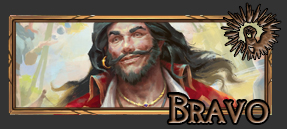
The most popular version of Iyslander was, without a doubt, the Bullander variant created by Michael Hamilton. This deck combined elements of control with heavy-hitting attacks that sought to maximize the efficiency of every card. And while I don't know that 'efficient' is a word I've associated with Bravo in the past, everything else about that description fits him perfectly.
An Iyslander player should feel quickly comfortable with the 'block and pitch' default utilized by Bravo players. And while disruption in Guardian comes with an aggressive posture instead of Iyslander's defensive tack, it does still exist. Many of the class' crush effects hobble the enemy with the same disadvantages, from the discard effects of Crippling Crush to the taxation of Cartilage Crush.


Bravo has been perennially competitive; and with a refocus on Guardians coming with Heavy Hitters, he may even find himself with fresh tools in the near future. (And if things don't work out with Bravo, you should have 2 more Guardians to consider pivoting to this spring.)
Instant Speed Shenanigans
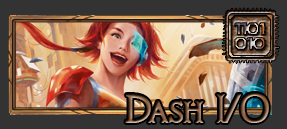
Dash I/O is looking like the breakout hero from Bright Lights - but that doesn't come without effort. Perfecting her decklist will continue to be a project, so Dash isn't the deck to switch to if you're looking to pick up a list and start taking tournaments. That said, there's incredible potential here, and much of it will feel familiar to Iyslander refugees.
Dash's greatest asset is the ability to play items from the top of her deck at instant speed. In many ways, it's very similar to Iyslander's 'blues from the arsenal', and can be just as disruptive. From on-the-fly action points to stat modifications, the tricks that Dash can employ in unexpected windows blur the distinction between magic and machinery.


Dash can be built in many different ways - including with the Nitro Mechanoid, if you're looking for a flashy finisher. And as a fresh face, Dash I/O should have a long run ahead of her before Living Legend becomes a threat. This is a deck you can invest in.
Might and Magic
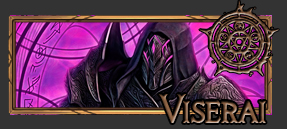
Maybe you really like token auras. One turn kills driven by a pile of stored damage. The ability to fall back on a defensive posture while moving your gameplan forward. These are the hallmarks of OTK Viserai, the original Runeblade who seems to step back into the shadows every time a new Runeblade debuts.
For Bullander fans, Viserai can be built to do the same thing, combining physical damage with bursts of arcane. Viserai takes it a step further, often presenting both types of damage at the same time.


And like Dash I/O, Viserai offers many paths in deckbuilding, giving you greater control to customize your build to your personal sensibilities - whether that's harnessing the power of big attacks or biding your time for big finishes.
There's something to be said for Vynnset as well, but the learning curve there is more significant, the decklists still unproven.
A Leap of Faith
Beyond these heroes, it gets pretty theoretical to draw comparisons. But I do want to point out two heroes who aren't currently putting up results, but have dynamics that might speak to elements of the Iyslander player in you.
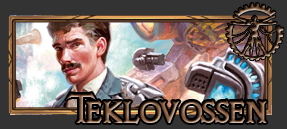
Teklovossen has thus far proven to be a slow-moving block-and-pitch hero with a late-game payoff. If you enjoy the gradual build-up of your big finishing move, you may find that Teklovossen scratches the itch. Like Iyslander, Teklovossen is a blue-heavy list, and so can afford to play out some heavy-hitting attacks while you progress toward Singularity (or simply a value-based win condition as you consistently reuse your equipment slots).


That said, there's a lot about Teklovossen that isn't very Iyslander. His EVO-based attacks require progress to gain value, leaving you with an incredibly weak early-game and unstable mid-game. You're also generally on the defensive from the outset - a position Iyslander seldom finds herself in. There's little in the way of control even available to this deck.
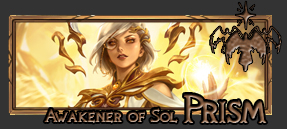
Prism, Awakener of Sol is the opposite. Highly adaptable and responsive to our opponents, Prism must make enough progress early on to stave off the drained resources of fatigue. Prism's instant-speed options are welcome territory for Wizards, while her hard-hitting herald attacks evoke Bullander.


But Prism needs to stay in the driver's seat, and that's easier said than done. What's more, her cards are expensive, but also encourage her to run a yellow-heavy curve; the reconciling of these competing demands defines the deckbuilding experience of Light Illusionists. Prism should never be underestimated, but for the moment she's fairly accurately pegged as a 'project deck', meaning a pivot from Iyslander to Prism would have you falling from 'contender' to 'pretender' in a heartbeat. Depending on your goals, that may not be reasonable.
A Frosty Farewell
In many ways, the departure of Iyslander is a massive end-of-the-line for her fans, rivaled only by the rotation of Prism last year. Transition won't be organic nor obvious, but there are shades of her gameplay across many heroes. In due time, we're likely to return to Aria, and unfreeze the Elemental cards in our collections. Until then, keep your eyes on movement to mainstream the Living Legend format.




